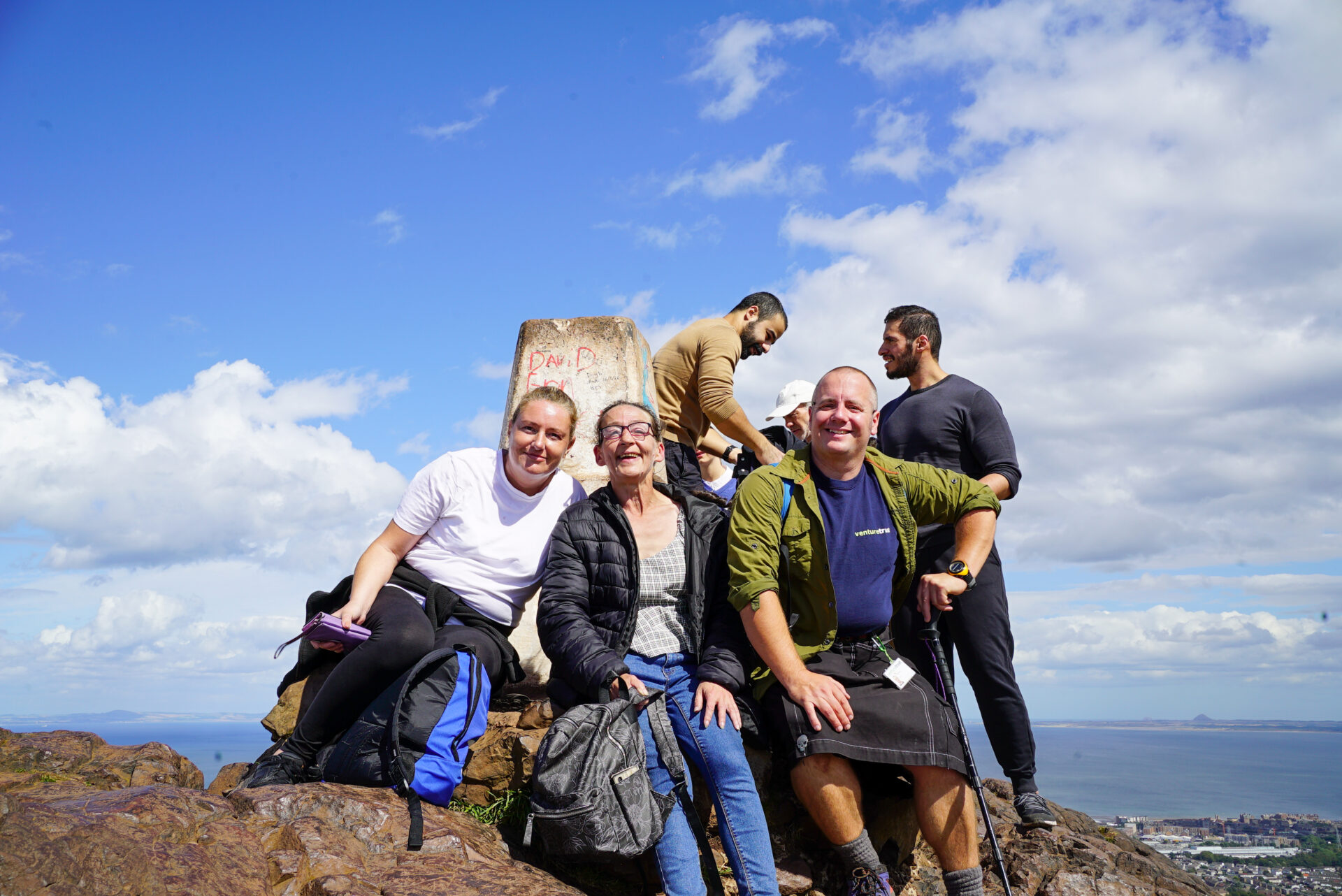With the return of lockdown, third sector organisations in Scotland will once more be confronted with the challenges of supporting people in need. The return to reduced social contact, self-isolation and disruption of services will once more have a disproportionate effect on people already struggling with complex life circumstances and exacerbated through the Covid-19 pandemic.
As we emerged from the original lockdown, we heard how valuable the digital support provided by Venture Trust was for the people we work with. However, they also told us getting back to meet their outreach worker face-to-face and re-engaging in our small group outdoor personal development phase was a huge boost to their wellbeing, learning and development. Being cut off physically proved difficult and stressful. In addition, regular meetings with social workers, addiction counsellors, mentors and community workers could no longer take place in person. Making it even more challenging to cast an appropriate support net around Scotland’s most vulnerable.
However, at Venture Trust – like many other organisations – being adaptive and flexible means we can respond and continue be there for those who do need it most.
We support the Scottish Government’s measures to beat coronavirus, but we understand the impacts restrictions bring. The biggest lesson we took from turning our services outside|in – moving from outdoor group-based personal development and in communities to working with smart technology to reach those who need help most in their own homes – is that regular meaningful contact is crucial in their continued learning and development.
“It’s good to have a chat and link up with people you wouldn’t otherwise. I live alone so if you have stuff like that, it helps to break up your day or your week. It gives you an outlet, a chance to continue working on your goals and have a laugh with people.” – Venture Trust participant
Our response
- One-to-one tailored support by phone or digital platforms. Our team is working and ready to help.
- We will use phone or digital contact channels to continue to check in with people, to provide personal development and wellbeing support, whilst getting their feedback on the types of help and support that might make the difference.
- Face-to-face support for the most vulnerable people who do not have other means of support and cannot access support remotely, or where necessary to conduct a court assessment.
- We are using our expertise in personal development and coaching to support people, offering help with:
>Wellbeing – managing being at home, structure, routines and relationships with others.
>Dealing with social isolation – resilience and self-care, helpful resources. Signposting to local and national support and additional services.
>Personal development – we will continue to work on skills development, self-awareness and goal setting with additional support aimed at those looking for further training and progression to employment.
- Through digital channels we will continue to offer people core skills development, self-awareness, barrier removal and goal setting with employability support aimed at those looking for further training and progression to employment. Supporting people to be more ready for work or to volunteer in their community.
- We are also actively seeking support to combat ‘data poverty’ for people with limited means to buy airtime or who usually rely on public wi-fi.
“I was supported with my phone top up whenever I need one. This meant I could keep in touch with family members and keep up with my job searches. If I didn’t have the extra money coming in from the top up then I wouldn’t have been able to do job applications and I might not even be in the job I am now.” – Venture Trust participant
We listened to learn
Our approach during this time is valuable and has been informed by listening to people’s lockdown fears.
Over 80% wanted to speak to their outreach worker at least once a week.
48% were worried about social isolation negatively affecting them.
33% worried that lockdown would aggravate their mental health problems. (Half of our participants already arrive with mental health issues).
25% suffered from data poverty and worried they would struggle to access help online.
16% were concerned about coping with addiction without access to support services.
15% were worried about how a prolonged period of lockdown will affect their chances of returning to work.






